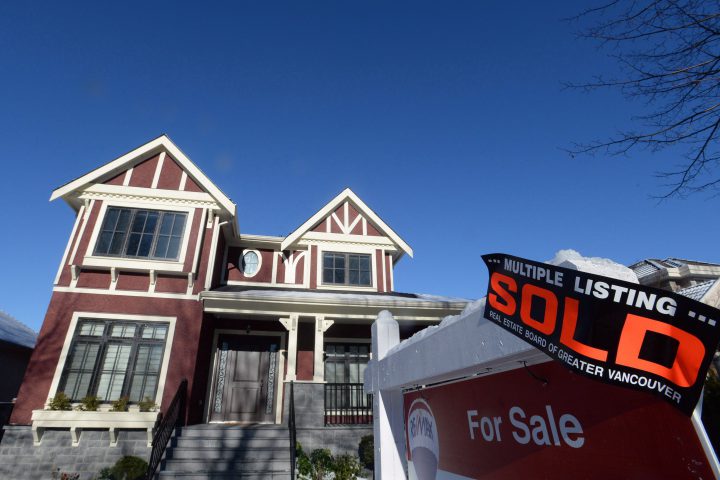A new report on Metro Vancouver’s sky-high real estate prices says speculators and foreign buyers aren’t driving the market.

Instead, the study from UBC’s Sauder School of Business points the finger at red tape, which it says is driving up construction costs.
Author James Tansey said he wrote the study, which is based on a review of existing government and academic studies, after becoming frustrated with the debate he was hearing on housing policy.
“The factors driving that are really much more tied to the success of the economy, to population growth and to high-interest rates, and have very little to do with foreign buyers and speculation,” Tansey told Global News.
WATCH: Metro Vancouver criticized for ‘green’ red tape

He said the study found that of all Canadian regions, Metro Vancouver is the slowest to respond to low supply.

Get breaking National news
He said it can take up to two years to get a build approved, which can add hundreds of thousands of dollars to the final cost of a unit — something buyers, not builders pay.
Tansey says while there is clearly some speculation it is not the main culprit.
The report argues that the government is making a mistake by focusing too much on demand-side interventions such as increases in the property transfer tax and school tax and the implementation of a new speculation tax.
“We just need more supply, we need to reduce the cost of new development applications,” Tansey said.
Tansey’s study argues that if the province actually expected its new taxes to reduce housing demand, its budget numbers would show falling revenue from the measures in the coming years. B.C.’s 2018 budget estimated a steady stream of revenue from the taxes.
The study recommends supply-side policies that focus on reducing the time it takes to approve new developments, reducing costs, and simplifying the zoning process of higher density development in areas currently dominated by detached houses.
It also proposes reinstating the federal Business Investor Program (BIP) — formerly known as the Immigrant Investor Program — which allows foreign investors to get on the path to citizenship by lending $800,000 to the government. That money, the report suggests, could be used to fund affordable rental housing.
That program was scrapped in 2014, but a similar program in Quebec remains in place, and has been criticized for offering wealthy immigrants a back door into B.C.’s housing market.
In February, the B.C. government unveiled a 10-year, 30-point plan that includes money to give municipalities more autonomy and build more than 100,000 homes.
Vancouver’s red tape
Meanwhile, Vancouver is looking to cut through red tape with a new pilot program to fast track home construction.
“The Applicant Supported and Assisted Process” is expected to reduce wait time for experienced builders with a good track by seven months.
“Builders who have a good track record, there are certain things they do repeatedly that you don’t need to scrutinize in applications which will reduce the amount of time spent on inspections,” said Greater Vancouver Home Builders Association president Bob de Witt.
De Witt said both the builder and the city will have a single point of contact to help with efficiency.
He said Vancouver’s goal is to expedite single family and laneway homes not fast-tracking public consultations and rezoning applications.
~With files from Emily Lazatin
- Recipe: Creamy cheddar, black pepper, and B.C. beer dip
- A look at the new districts in B.C.’s fall election as legislature grows to 93 seats
- Police search for suspect in fatal Langley shooting, believed to be linked to gang conflict
- Vancouver Canucks welcome former foe Kiefer Sherwood with welcome arms














Comments